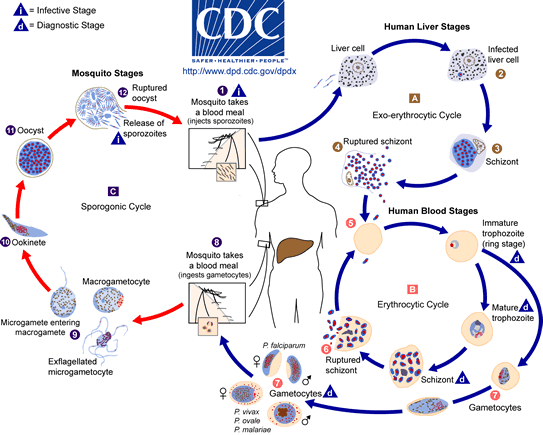QUESTION
Where did malaria start in Africa?
ANSWER
Malaria has been present in Africa for tens of thousands of years; given this ancient history, it is very difficult to know exactly where it first entered the continent. Also, there are several different types of malaria in Africa, which have likely had different histories, and malaria researchers continually unearth new evidence regarding the origins of these different species.
For example, it has long been thought that Plasmodium falciparum, the most deadly form of malaria, emerged somewhere in the western Congo Basin in Central Africa. Originally, it was thought to have crossed over into humans from a closely related species found in chimpanzees, but recent research, published only in 2010, has suggested that a new species, found in gorillas, is actually the closer relative.
Plasmodium vivax, the most geographically widespread species of malaria that infects humans, has less clear origins. Many of its closely related species occur in south-east Asia, which leads some researchers to suggest this is where it emerged, passing into Africa as humans and their livestock moved across Asia towards the Middle East and North Africa, or possibly via migration through Madagascar. However, other researchers argue that the high prevalence of certain genetic mutations which protect against Plasmodium vivax malaria found in populations in Africa and of African descent, and particularly West Africa, is evidence that P. vivax actually originated on this continent.
